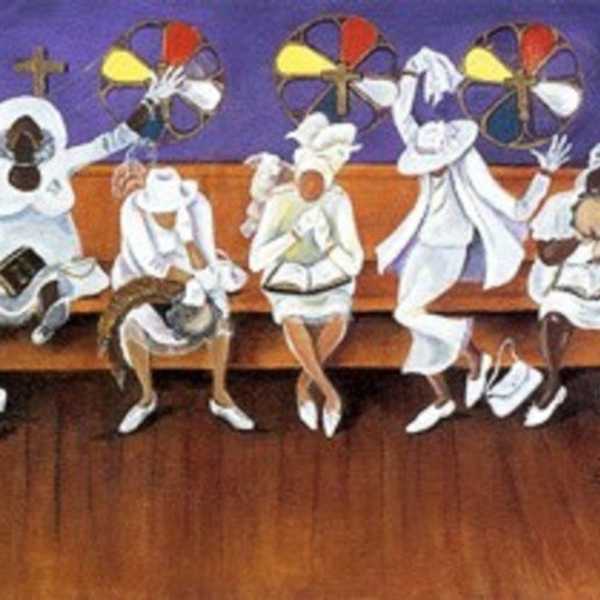I've been attending church for about eight years now. All of the churches I've visited shared a similar practice. Up until recently, I thought nothing of it. What is this practice? Playing music during a prayer or sermon with the intention of swaying the congregation's emotions. While it may be commonplace, I have to conclude that it is not right. More than that, it is not biblical.
I was sitting in church last Sunday when this happened. Although it's occurred numerous times before, I had not regarded it as negative until last week. The following moment I'm about to describe I'm afraid is all too familiar to many church goers: worship has just ended. All band members excluding the lead guitarist exited the stage, so that he could pray before the sermon began. He asked us to bow our heads and pray with him as he lead us to pray over the message and the speaker. Accordingly, I closed my eyes and tried to have a genuine conversation with God. That genuine conversation became difficult to have, however, when the pianist began not-so-quietly playing an improvised, melancholy melody to set the mood. My head immediately shot up. I couldn't concentrate anymore. Rather than having a sincere conversation with the Lord, I now felt like my mood and my responses were being manipulated by an outside source. In this case, that source was music.
This happens during prayer, during communion, and while a pastor is wrapping up a sermon to make his or her final point. I used to see nothing wrong with this practice, but my recent readings in the book of Colossians have caused me to regard the subject differently. Colossians 2:8 says, "See to it that no one takes you captive through hollow and deceptive philosophy which depends on human tradition and the elemental spiritual forces of this world rather than on Christ." Now, I realize that this verse could have a few different meanings, depending on how one looks at it. However, I think it could be applied to the spiritual interference I experience when worship leaders play background music to make the congregation feel a certain way.
It feels like an interference, to me, because my mind is not being left to talk to the Lord or ponder the message of the sermon through my mind or through the Holy Spirit alone. Music is powerful. We listen to it while we pray, run, or dance because it helps set a mood and can often motivate us to accomplish particular tasks. I think this is a great thing; I think it's a God-given gift. Due its influential power over our emotions, music should be handled carefully, especially within a church setting.
When learning to construct literary arguments in English class, students are taught three core methods or persuasion: ethos, logos, and pathos. Most of the time, it is highly encouraged that students use ethos to prove their credibility and then compile relevant evidence with logos. Pathos, on the other hand, is the sort of persuasion seen in pet adoption commercials and the like. It's a design of prompting which attacks the viewer's emotions. Pathos is generally seen as a low-blow. While it is often effective in getting consumers to adopt a puppy or donate to a charity, those with their critical-thinking glasses on can generally see these ploys and realize that they should be considering ethos and logos as well.
When music is played in church to set a mood, it's a low-blow. They are using pathos rather than letting the logos of the pastor's argument or prayer, speak for itself.
If this practice persists, genuine conversions and moments of confession will become scarce. This type of pathos, I think, can be attributed to the "spiritual mountain top" feeling students experience at youth retreats and the like. As an adolescent, I often would leave these emotionally hyped sermons realizing that in my heart, I was not any different than I was when I sat down to listen to the message. Why? Nothing was genuine. Everything I "experienced" was pathos driven. In those instances, I was prompted to "confess" or go to the altar not because I experienced true conviction in my heart, but because the dimming lights and soft background music created an aura of spiritual conviction. The Bible even acknowledges that empty prayers do exist and God doesn't appreciate those, in case you were wondering.
Is it possible that when churches use music in this way they are relying on the "elemental spiritual forces of this world rather than on Christ?" In short, are they using pathos to create a temporary feeling of conviction that will fade away when the music does?
I'm interested to see what other church-goers and worship leaders think about this. Let me know your thoughts and reasoning in the comments.





















